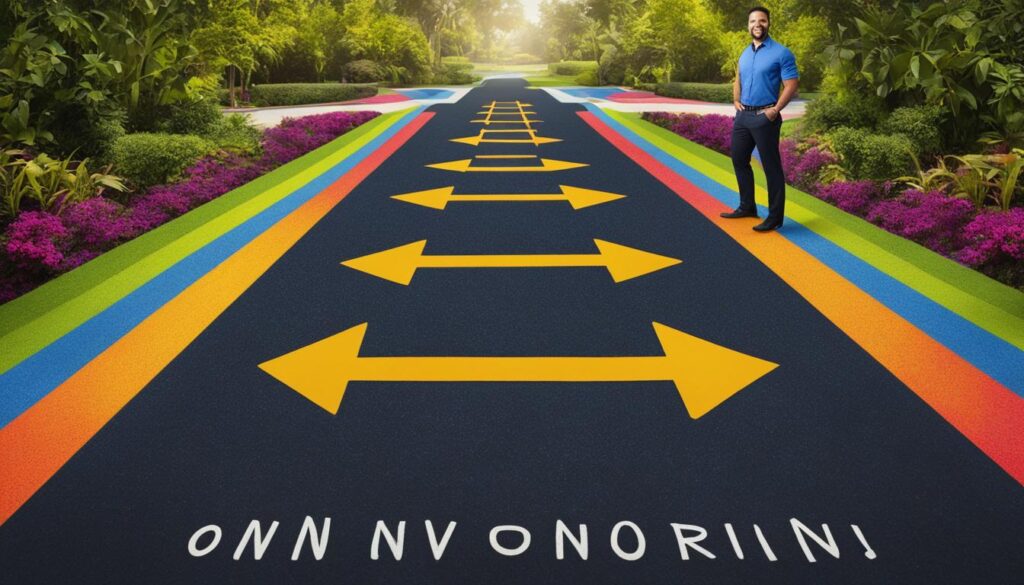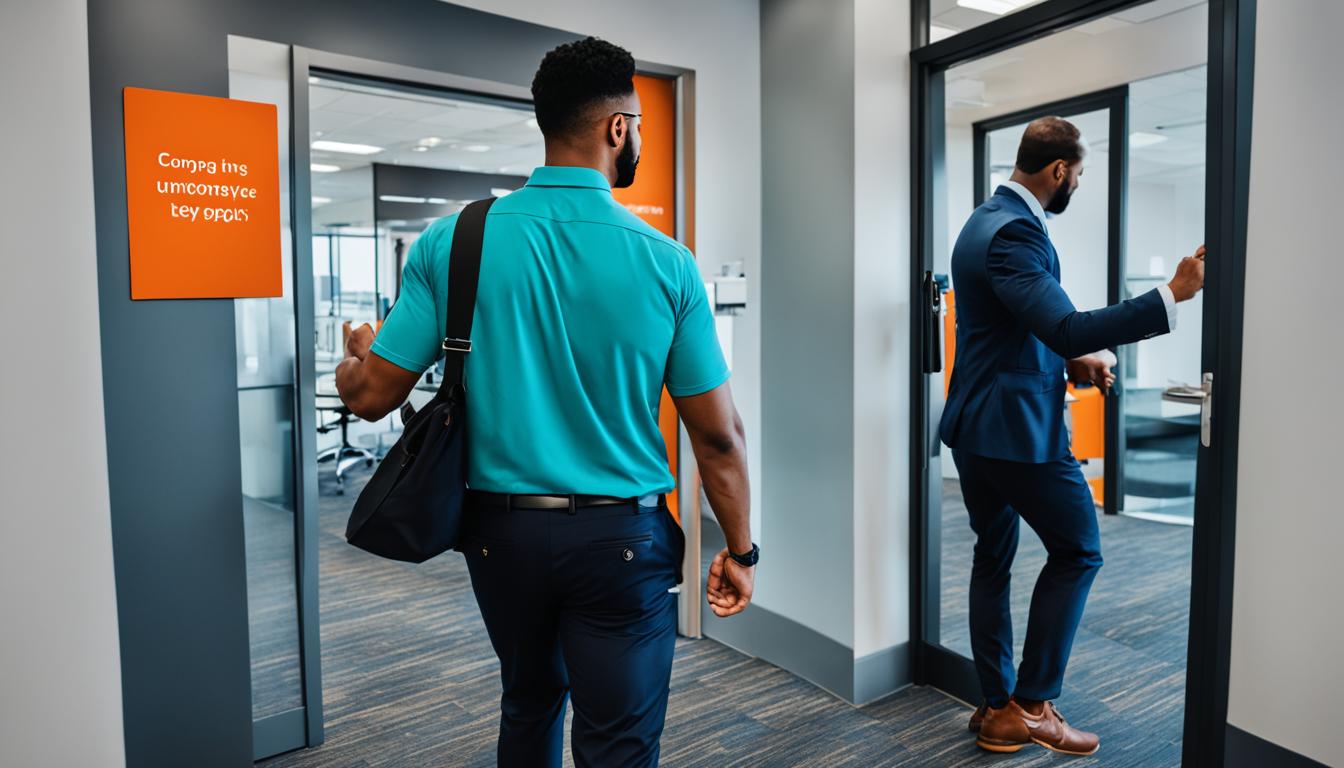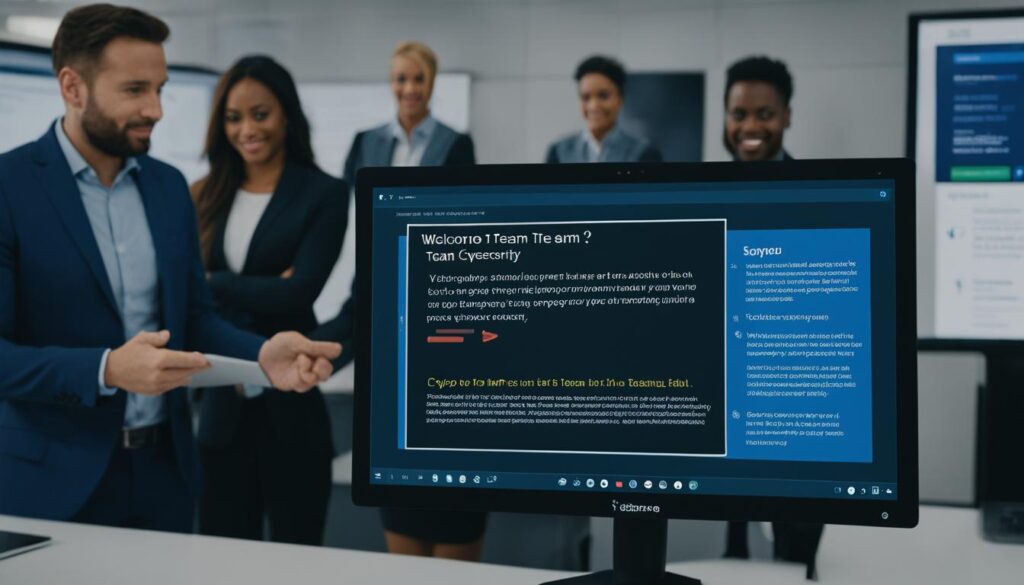Providing a personalized onboarding experience is crucial in today’s competitive job market. According to a Gallup survey, only 12% of employees believe their organization does a great job at onboarding new hires. A personalized onboarding process can lead to higher retention rates, increased employee engagement, improved productivity, and a stronger company culture. By tailoring the onboarding experience to fit the specific needs of each new hire, companies can create a welcoming and effective onboarding plan that sets their employees up for success.
Key Takeaways:
- Personalized onboarding improves retention rates and employee engagement.
- Individualized onboarding programs contribute to increased productivity.
- Assessing individual needs and preferences is critical for personalizing the onboarding process.
- A tailored onboarding plan includes activities, materials, and resources that support individual needs and goals.
- Personalized onboarding fosters a positive company culture and promotes employee success.
The Benefits of Personalized Onboarding
A personalized onboarding experience has numerous benefits for both the company and the new hires. Research by Brandon Hall Group shows that a well-organized and personalized onboarding experience can improve retention rates by 82%. Personalization also leads to increased employee engagement, as new hires feel more connected to the company and understand how their work contributes to its success. Moreover, a detailed and well-thought-out onboarding process can increase employee productivity by 60%. Finally, a personalized onboarding plan helps new employees assimilate into the company culture and create a sense of belonging.
When new hires feel valued and supported from the beginning, they are more likely to stay with the company long-term. A customized onboarding experience that addresses their specific needs and goals sets a positive tone for their entire journey with the organization.
By tailoring the onboarding process to each individual, companies can ensure that new hires receive the necessary training, resources, and support to succeed in their roles. This personalized approach not only helps new employees feel welcomed, but also fosters a sense of trust and loyalty towards the company.

Furthermore, a personalized onboarding experience enables new hires to quickly understand their responsibilities and how they fit into the larger organizational structure. It helps them establish meaningful connections and relationships with their colleagues, making them feel like a valued part of the team.
With a tailored onboarding plan, companies can create a positive first impression that shapes the employee’s perception of the company. This positive experience influences their commitment, motivation, and overall job satisfaction, which, in turn, leads to higher levels of engagement and productivity.
Next, we will explore six simple ways to personalize your onboarding process and create the customized onboarding journey your new hires deserve.
6 Simple Ways to Personalize Your Onboarding Process
Creating a customized onboarding experience doesn’t have to be complicated. By implementing these six simple tips, you can make your onboarding process more employee-oriented and enhance the personalized onboarding journey for new hires:
- Introduce the team: One of the first steps in personalizing the onboarding process is to introduce new hires to their team members. This can be done through a welcome email with employee bios or by scheduling a virtual meet-and-greet session.
- Provide a welcome kit: Make new hires feel valued from day one by providing them with a personalized welcome kit. This could include company-branded merchandise, a handwritten note from their manager, or any other items that align with your company culture.
- Offer tailored training: Customize the new hire training program to fit each individual’s specific needs. This could involve providing additional resources for employees with different learning styles, offering self-paced modules, or assigning a mentor to support their development.
- Assign a buddy: Pairing new hires with a buddy or mentor can help them acclimate to the company culture and foster a sense of belonging. The buddy can provide guidance, answer questions, and offer support throughout the onboarding process.
- Set clear goals: Work with new hires to establish individual goals and expectations during the onboarding period. This will help them understand what is expected of them and provide a roadmap for their success within the company.
- Solicit feedback: Regularly seek feedback from new hires about their onboarding experience. This could be done through surveys or one-on-one check-ins. Use this feedback to continuously improve and tailor your onboarding process.
By implementing these simple strategies, you can create a personalized onboarding experience that sets new hires up for success and fosters a positive and engaging company culture.

Assessing Individual Needs and Preferences
Assessing individual needs and preferences is a crucial step in creating a personalized onboarding experience. When welcoming new hires, it’s important to understand their unique background, learning style, and career goals. Gathering this information can be done through personal interviews, surveys, or even observing their preferences during the hiring process.
By taking the time to assess each new hire’s individual needs and preferences, companies can tailor the onboarding journey to meet their specific requirements. This personalized approach ensures that the onboarding process is more effective and engaging, resulting in higher employee satisfaction and success.
During the assessment phase, you can gather insights into the preferred learning methods of your new hires, whether they thrive in collaborative or individual work settings, and what motivates them in their professional development. This information can help you customize the onboarding program to best support their needs and deliver a tailored onboarding plan.
One effective method is to incorporate onboarding surveys or assessments that new hires can complete before their first day. These surveys can cover topics such as preferred communication styles, desired training formats, and any previous experiences that can be leveraged during the onboarding process.
By assessing individual needs and preferences, companies can create a personalized onboarding process that fosters a sense of belonging, helps new hires quickly acclimate to their roles, and sets them up for long-term success within the organization.
Creating a customized onboarding experience begins with understanding the unique needs and preferences of each new hire. By assessing their individual requirements, you can tailor the onboarding journey to provide the support and resources they need to thrive in their new role.
Creating a Personalized Onboarding Plan
-
Assess individual needs and preferences: Start by understanding each new hire’s background, learning style, and goals. Gather this information through personal interviews, surveys, or observation during the hiring process. This will help you tailor the onboarding experience to meet the specific requirements of each new hire.
-
Develop a customized plan of action: Use the gathered information to create a personalized onboarding plan. This plan should include activities, materials, and resources that support each new hire’s specific needs and goals. Think outside the box and be creative in designing the plan to meet the unique requirements of each individual.
-
Incorporate interactive elements: Make the onboarding journey engaging and interactive. Consider including activities like job shadowing, mentoring, and team building exercises to facilitate a smooth integration into the company culture. Provide training materials and job aids to support each new hire’s learning process.
-
Ensure ongoing support and communication: Personalized onboarding doesn’t end on day one. Provide ongoing support and maintain open lines of communication with new hires. Regular check-ins, feedback sessions, and mentorship programs can help new employees feel supported and valued throughout their onboarding journey.
Creating a personalized onboarding plan sets each new hire up for success in their new role. By addressing their individual needs and preferences, incorporating interactive elements, and providing ongoing support, you can ensure a tailored onboarding experience that fosters a sense of belonging and accelerates their integration into the company.
Conclusion
Personalizing the employee onboarding process is vital in creating a positive and engaging experience for new hires. When companies tailor the onboarding process to fit the specific needs of each employee, it leads to improved retention rates, increased employee engagement, enhanced productivity, and a stronger company culture.
One of the key steps in personalizing the onboarding journey is assessing individual needs and preferences. By taking the time to understand each new hire’s background, learning style, and goals, companies can develop a customized onboarding plan that meets their unique requirements. This tailored approach ensures that new employees feel valued and supported, setting them up for success in their new roles.
Incorporating interactive elements such as e-learning, milestones, team-building activities, and technology also plays a crucial role in a personalized onboarding program. These elements not only enhance the learning experience but also foster meaningful connections and a sense of belonging within the company.
By following these tips and implementing a personalized onboarding program, companies can create a welcoming and effective onboarding journey that leaves a lasting impression. This personalized approach will not only help new hires feel more connected and motivated from day one but will also contribute to the long-term success of both the individuals and the organization as a whole.
FAQ
Why is personalized onboarding important?
Personalized onboarding is important because it leads to higher retention rates, increased employee engagement, improved productivity, and a stronger company culture.
What are the benefits of a personalized onboarding experience?
The benefits of a personalized onboarding experience include improved retention rates by 82%, increased employee engagement, increased productivity by 60%, and a sense of belonging within the company culture.
How can I personalize my onboarding process?
You can personalize your onboarding process by assessing individual needs and preferences, creating a customized onboarding plan, and incorporating interactive elements such as e-learning, milestones, team building activities, and technology.
How do I assess individual needs and preferences?
You can assess individual needs and preferences by understanding each new hire’s background, learning style, and goals. This information can be gathered through personal interviews, surveys, or observation during the hiring process.
How do I create a customized onboarding plan?
To create a customized onboarding plan, use the information gathered from assessing individual needs and preferences to develop a plan of action that includes activities, materials, and resources that support each new hire’s specific needs and goals.
What are some tips for personalizing the onboarding process?
Some tips for personalizing the onboarding process include assessing individual needs and preferences, creating a personalized onboarding plan, incorporating interactive elements, providing personalized onboarding support, and ensuring a tailored onboarding journey for each new hire.




